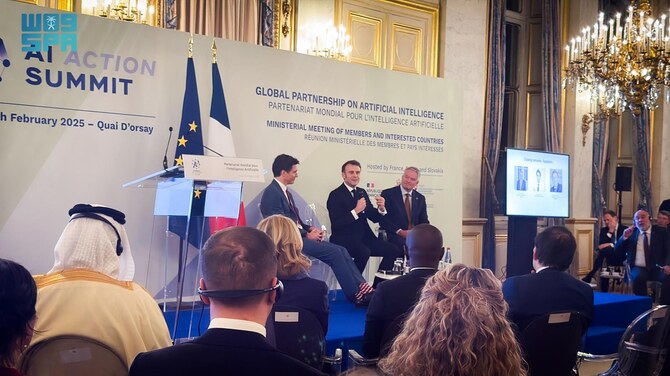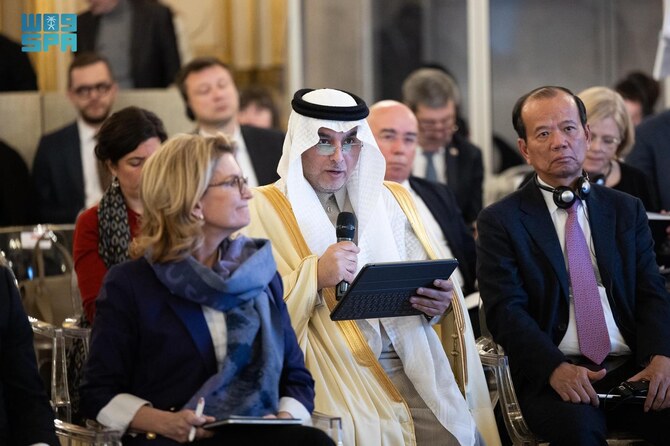Riyadh: President of the Saudi Data and AI Authority Abdullah Al-Ghamdi said that Saudi Arabia has presented a pioneering model for strengthening comprehensive artificial intelligence governance at both regional and global levels.
He noted that this comes amid a growing global need for such governance, as AI continues to shape economies, societies, and global power structures, transcending international borders and impacting industries, governments, labor markets, and security.
His remarks came during his speech at a session held on Monday as part of the AI Action Summit, hosted in Paris from Feb. 10–11, the Saudi Press Agency reported.
The session was attended by French President Emmanuel Macron and Canadian Prime Minister Justin Trudeau, along with several world leaders, policymakers, and leading AI experts.
Al-Ghamdi emphasized that comprehensive AI governance ensures all stakeholders — including governments, businesses, civil society, and underrepresented communities — have a role in shaping the future of AI.
He noted that by fostering collaboration and transparency, comprehensive governance can mitigate risks, build trust, and establish a framework that ensures AI serves all of humanity rather than benefiting only a specific group, the SPA reported.
Al-Ghamdi added that without diverse perspectives in policymaking, AI risks exacerbating inequalities, reinforcing biases, and favoring only certain groups.
He highlighted that Saudi Arabia has published 65 AI-related policies on the Organization for Economic Co-operation and Development’s AI Policy Observatory, ranking third after the US and the UK.
Moreover, Al-Ghamdi said the Kingdom launched the AI Policy and Incident Observatory for the Middle East in Arabic, reflecting its commitment to regional transparency and data-driven policymaking.
He also highlighted Saudi Arabia’s local, regional, and international efforts in data and AI, noting that in 2020, before the latest AI breakthroughs, the Kingdom hosted the first Global AI Summit in Riyadh.
In 2024, the Kingdom organized the third and largest edition of the summit, bringing together experts, policymakers, and industry leaders from over 100 countries to shape the future of AI for the benefit of humanity, he said.
Driven by its commitment to ensuring AI advancements align with Islamic values and ethical principles, Saudi Arabia hosted the largest consultative session of the UN Advisory Body on AI in Riyadh, with representatives from over 53 Islamic countries, Al-Ghamdi said.
These efforts, he added, culminated in the launch of the Riyadh Charter for AI Ethics in the Islamic World last September, reflecting AI’s impact on the lives of 2 billion Muslims worldwide.
Al-Ghamdi said that Saudi Arabia’s role in AI governance extends beyond initiatives to the establishment of the International Center for AI Research and Ethics in Riyadh. As a Category 2 center under UNESCO, it will play a pivotal role in shaping AI policies, enhancing capacity building, and supporting the development of ethical and responsible AI, he noted.
The center has organized several events in collaboration with the Arab League and the Gulf Cooperation Council, bringing together over 100 experts from 28 countries and institutions with the aim of strengthening regional AI governance and establishing clear ethical regulations.
Al-Ghamdi concluded by emphasizing that, as the heart of the Arab and Islamic worlds, Saudi Arabia is ready to contribute to shaping the future of the Global Partnership on Artificial Intelligence, which will hold its 2025 ministerial council meeting in Slovakia.
He called for unified international efforts to build an innovative, trustworthy, and inclusive AI ecosystem.

















